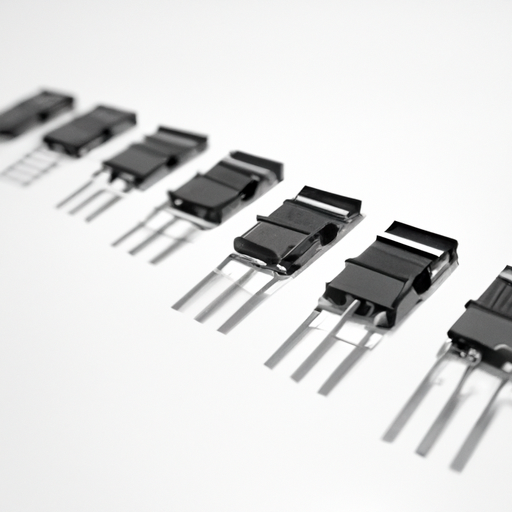When Will the New Car Resistors Be Released?
I. Introduction
In the ever-evolving world of automotive technology, car resistors play a crucial role in ensuring the smooth operation of various systems within vehicles. These components are essential for managing electrical currents, controlling heat, and enhancing overall vehicle performance. As the automotive industry shifts towards more advanced technologies, the demand for innovative car resistors has never been greater. This article aims to inform readers about the anticipated release of new car resistors, exploring their significance, the need for advancements, and the expected timeline for their arrival.
II. Overview of Car Resistors
A. Explanation of What Car Resistors Are
Car resistors are electrical components that limit the flow of current in automotive systems. They come in various types, including power resistors, which handle high power levels, and variable resistors, which can adjust resistance based on specific conditions. These components are integral to numerous applications, such as controlling the speed of electric motors, managing the temperature of electronic components, and ensuring the proper functioning of sensors.
B. Current Technologies in Car Resistors
The materials used in car resistors significantly impact their performance. Common materials include ceramic and metal oxide, each offering unique benefits. For instance, ceramic resistors are known for their high thermal stability, making them suitable for high-temperature applications. Performance characteristics such as resistance values and thermal stability are critical for ensuring that resistors can withstand the demanding conditions of automotive environments.
III. The Need for New Car Resistors
A. Advancements in Automotive Technology
The automotive landscape is rapidly changing, with the rise of electric and hybrid vehicles leading the charge. These vehicles require more sophisticated electrical systems, which in turn necessitate advanced resistor technologies. As manufacturers strive for greater energy efficiency and performance, the limitations of existing resistor technologies become increasingly apparent.
B. Limitations of Existing Resistor Technologies
Current resistor technologies face several challenges. Heat dissipation is a significant issue, as excessive heat can lead to component failure and reduced lifespan. Additionally, the size and weight of traditional resistors can hinder the design of compact and lightweight vehicles. Reliability is another concern, as resistors must endure harsh conditions over extended periods without compromising performance.
IV. Innovations in Resistor Technology
A. Research and Development in Resistor Materials
To address these challenges, researchers are exploring new materials for car resistors. Innovations such as graphene and advanced ceramics are at the forefront of this research. Graphene, for instance, offers exceptional thermal conductivity and can significantly reduce the size of resistors without sacrificing performance. These advancements promise to enhance the efficiency and reliability of automotive systems.
B. Smart Resistors and Their Applications
The future of car resistors also lies in the development of smart resistors. These components can integrate with electronic control units (ECUs) to provide adaptive resistance based on real-time conditions. This dynamic performance allows for improved energy management and can lead to enhanced vehicle efficiency. Smart resistors represent a significant leap forward in automotive technology, paving the way for more intelligent and responsive vehicles.
V. Anticipated Release Timeline
A. Current State of Research and Development
The automotive resistor market is witnessing significant investment from key players, including major automotive manufacturers and technology companies. Ongoing projects and collaborations are focused on developing next-generation resistors that can meet the demands of modern vehicles. Research institutions are also playing a vital role in advancing resistor technology, contributing to a collaborative ecosystem that fosters innovation.
B. Expected Release Dates for New Car Resistors
While the exact release dates for new car resistors remain uncertain, industry experts predict several short-term and long-term developments. In the next 1-2 years, we can expect the introduction of improved resistor technologies that address some of the current limitations. These may include enhanced thermal management solutions and more compact designs. Looking further ahead, the next 3-5 years could see the emergence of smart resistors and advanced materials that revolutionize the automotive landscape.
VI. Impact of New Car Resistors on the Automotive Industry
A. Benefits for Manufacturers
The introduction of new car resistors will have a profound impact on automotive manufacturers. Enhanced vehicle performance is one of the most significant benefits, as improved resistors can lead to better energy efficiency and overall functionality. Additionally, manufacturers may experience cost savings in production and maintenance, as advanced resistors can reduce the need for frequent replacements and repairs.
B. Implications for Consumers
For consumers, the benefits of new car resistors are equally compelling. Improved vehicle efficiency translates to lower fuel consumption and reduced emissions, aligning with the growing demand for environmentally friendly transportation options. Furthermore, enhanced reliability means fewer breakdowns and lower repair costs, ultimately leading to a more satisfying ownership experience.
VII. Conclusion
In conclusion, the anticipated release of new car resistors represents a significant milestone in the automotive industry. As technology continues to advance, the importance of innovative resistor solutions cannot be overstated. These components are essential for meeting the demands of modern vehicles, particularly in the context of electric and hybrid technologies. As we look to the future, it is crucial for industry stakeholders and consumers alike to stay informed about developments in automotive technology and resistor innovation. The journey towards more efficient, reliable, and intelligent vehicles is just beginning, and new car resistors will undoubtedly play a pivotal role in shaping that future.
VIII. References
1. Automotive Resistor Technology: Current Trends and Future Directions. (2023). Journal of Automotive Engineering.
2. Innovations in Resistor Materials: A Review. (2023). Materials Science and Engineering Reports.
3. The Impact of Smart Resistors on Automotive Performance. (2023). International Journal of Automotive Technology.
4. Future of Electric Vehicles: Challenges and Opportunities. (2023). Electric Vehicle Research Journal.
5. Industry Reports on Automotive Components: Resistors and Beyond. (2023). Automotive Components Market Analysis.
This blog post provides a comprehensive overview of the anticipated release of new car resistors, highlighting their significance, technological advancements, and the impact on the automotive industry. As the landscape continues to evolve, staying informed about these developments will be essential for both manufacturers and consumers.






